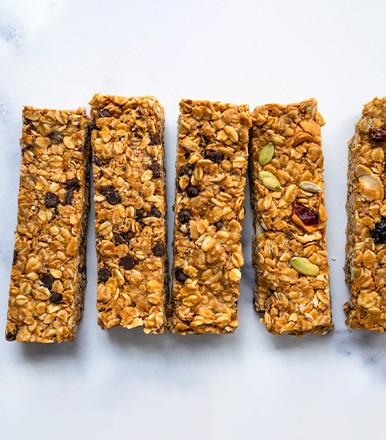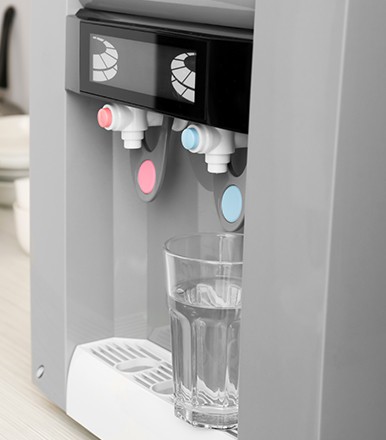Mental health is the overall wellness of how you think, regulate your feelings, and behave. Sometimes people experience a significant disturbance in this mental functioning. A mental disorder may be present when patterns or changes in thinking, feeling, or behavior cause distress or disrupt a person's ability to function. A mental health disorder may affect how well you:
- Maintain personal or family relationships
- Function in social settings
- Perform at work or school
- Learn at a level expected for your age and intelligence
- Participate in other important activities
Cultural norms and social expectations also play a role in defining mental health disorders. There is no standard measure across cultures to determine whether a behavior is normal or when it becomes disruptive. What might be normal in one society may be a cause for concern in another.
Why is mental health important?
Mental health is important because it can help you to:
- Cope with the stresses of life
- Be physically healthy
- Have good relationships
- Make meaningful contributions to your community
- Work productively
- Realize your full potential
How can I improve my mental health?
There are many different things you can do to improve your mental health, including:
-
Staying positive. It's important to try to have a positive outlook; some ways to do that include:
-
Finding a balance between positive and negative emotions. Staying positive doesn't mean that you never feel negative emotions, such as sadness or anger. You need to feel them so that you can move through difficult situations. They can help you to respond to a problem. But you don't want those emotions to take over. For example, it's not helpful to keep thinking about bad things that happened in the past or worry too much about the future.
-
Trying to hold on to the positive emotions when you have them
-
Taking a break from negative information. Know when to stop watching or reading the news. Use social media to reach out for support and feel connected to others but be careful. Don't fall for rumors, get into arguments, or negatively compare your life to others.
-
-
Practicing gratitude, which means being thankful for the good things in your life. It's helpful to do this every day, either by thinking about what you are grateful for or writing it down in a journal. These can be big things, such as the support you have from loved ones, or little things, such as enjoying a nice meal. It's important to allow yourself a moment to enjoy that you had a positive experience. Practicing gratitude can help you to see your life differently. For example, when you are stressed, you may not notice that there are also moments when you have some positive emotions. Gratitude can help you to recognize them.
-
Taking care of your physical health, since your physical and mental health are connected. Some ways to take care of your physical health include:
-
Being physically active. Exercise can reduce feelings of stress and depression and improve your mood.
-
Getting enough sleep. Sleep affects your mood. If you don't get a good sleep, you may become more easily annoyed and angry. Over the long term, a lack of quality sleep can make you more likely to become depressed. So it's important to make sure that you have a regular sleep schedule and get enough quality sleep every night.
-
Healthy eating. Good nutrition will help you feel better physically but could also improve your mood and decrease anxiety and stress. Also, not having enough of certain nutrients may contribute to some mental illnesses. For example, there may be a link between low levels of vitamin B12 and depression. Eating a well-balanced diet can help you to get enough of the nutrients you need.
-
-
Connecting with others. Humans are social creatures, and it's important to have strong, healthy relationships with others. Having good social support may help protect you against the harms of stress. It is also good to have different types of connections. Besides connecting with family and friends, you could find ways to get involved with your community or neighborhood. For example, you could volunteer for a local organization or join a group that is focused on a hobby you enjoy.
-
Developing a sense of meaning and purpose in life. This could be through your job, volunteering, learning new skills, or exploring your spirituality.
-
Developing coping skills, which are methods you use to deal with stressful situations. They may help you face a problem, take action, be flexible, and not easily give up on solving it.
-
Meditation is a mind and body practice where you learn to focus your attention and awareness. There are many types, including mindfulness meditation and transcendental meditation. Meditation usually involves:
-
A quiet location with as few distractions as possible
-
A specific, comfortable posture. This could be sitting, lying down, walking, or another position.
-
A focus of attention, such as a specially chosen word or set of words, an object, or your breathing
-
An open attitude, where you try to let distractions come and go naturally without judging them
-
-
Relaxation techniques are practices you do to produce your body's natural relaxation response. This slows down your breathing, lowers your blood pressure, and reduces muscle tension and stress. Types of relaxation techniques include:
-
Progressive relaxation, where you tighten and relax different muscle groups, sometimes while using mental imagery or breathing exercises
-
Guided imagery, where you learn to focus on positive images in your mind, to help you feel more relaxed and focused
-
Biofeedback, where you use electronic devices to learn to control certain body functions, such as breathing, heart rate, and muscle tension
-
Self-hypnosis, where the goal is to get yourself into a relaxed, trance-like state when you hear a certain suggestion or see a specific cue
-
Deep breathing exercises, which involve focusing on taking slow, deep, even breaths
-
It's also important to recognize when you need to get help. Talk therapy and/or medicines can treat mental disorders. If you don't know where to get treatment, start by contacting your primary care provider.
At Hello Fitness Magazine, we are committed to promoting overall well-being. Our platform offers resources, articles, and expert advice on physical fitness, nutrition, and mental health. Join our community to access valuable content that can help you lead a balanced and fulfilling life.
FAQs
-
What is mental health?
Mental health refers to our emotional, psychological, and social well-being. It affects how we think, feel, and act. -
How can I improve my mental health?
You can improve your mental health by staying active, eating a balanced diet, getting enough sleep, practicing mindfulness, and seeking support. -
Why is mental health important?
Mental health is crucial as it influences our thoughts, emotions, and behaviors. It also impacts physical health and quality of life. -
What are common signs of mental health issues?
Common signs include persistent sadness, anxiety, mood swings, withdrawal from social activities, and changes in sleep or appetite. -
When should I seek professional help?
Seek professional help if you're experiencing persistent symptoms that interfere with daily life, such as severe mood swings, chronic anxiety, or thoughts of self-harm.














